How long does car detailing take? Did you know that the time it takes to detail a car can vary significantly depending on multiple factors?
Whether you’re a car owner eager to have your vehicle look its best or a professional detailer aiming to provide top-notch service, comprehending the intricate web of variables influencing the duration is crucial.
In the world of car detailing, time is money, and knowing the ropes can make all the difference. Join us as we unveil the secrets behind the time it takes to detail a car, giving you the power to plan your day effectively and make informed choices.
Contents
Prepare to embark on a journey where understanding the nuances of car detailing timelines can lead to a smoother, more efficient experience—a fact that both enthusiasts and
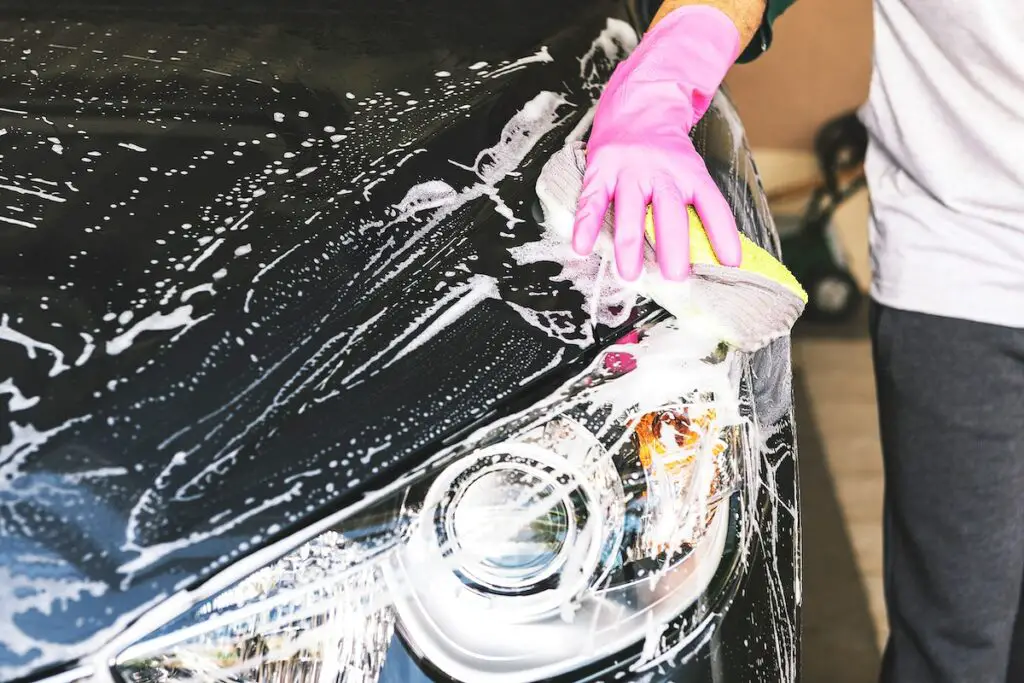
How long does car detailing take?
The time it takes for car detailing can vary widely based on the level of service and the condition of the vehicle.
A basic detailing can take around 2–3 hours, while a more comprehensive detailing that includes services like paint correction and ceramic coating can take 6–12 hours or even longer.
Factors such as the size of the vehicle, the experience of the detailer, and the extent of dirt or damage also influence the duration of the detailing process. It’s best to consult with your chosen detailer to get a specific time estimate based on your car’s needs.
Importance of Time Management
Time management plays a crucial role in car detailing. Detailing a vehicle involves several steps, such as washing, waxing, polishing, and cleaning the interior.
Each step requires attention to detail and can take varying amounts of time, depending on the condition of the car and the level of detail desired.
Factors Affecting Duration
Several factors can influence how long it takes to detail a car:
- Size of the Vehicle: Larger vehicles generally require more time to clean thoroughly compared to smaller ones.
- Condition of the Vehicle: If your car hasn’t been detailed in a while or has significant dirt and grime buildup, it may take longer to achieve the desired results.
- Level of Detail: The extent to which you want your car cleaned and polished will impact the overall duration.
- Experience and Skill: Professional detailers with years of experience may be able to complete the job more efficiently than someone who is new to detailing.
Typical Timeframes
While every situation is unique, here are some general estimates for different types of detailing services:
- Basic Exterior Wash: 30 minutes to 1 hour
- Full Interior Cleaning: 1 hour to 2 hours
- Complete Exterior Detailing (including wash, wax, and polish): 2 hours to 4 hours
- Full Interior and Exterior Detailing: 4 hours to 8 hours or more
Remember that these are just rough estimates, and actual times may vary based on individual circumstances.
What is car detailing?
Car detailing is a comprehensive cleaning and reconditioning process for your car, both inside and out.
It involves meticulous cleaning, polishing, and waxing to restore the vehicle’s appearance to its original condition.
Differentiating between car wash vs detailing
While a car wash primarily involves cleaning the exterior of the vehicle using water, soap, and brushes, car detailing takes it to another level.
A professional detailer pays attention to every nook and cranny of the car, both inside and out.
They use specialized tools, products, and techniques to remove dirt, grime, stains, scratches, and imperfections that a regular wash may not address.
Highlighting the comprehensive nature of professional car detailing services
Professional car detailing services encompass various aspects such as exterior paint correction, interior cleaning and conditioning, engine bay cleaning, wheel polishing, glass treatment, upholstery restoration, odor removal, and more.
Each step is performed meticulously to ensure that every inch of the vehicle receives proper care.
Emphasizing the attention to detail involved in this process
Car detailing requires an exceptional eye for detail. A detailer carefully inspects every surface for imperfections or areas that need special treatment.
They use specific techniques like clay bar treatment for removing contaminants from the paintwork or steam cleaning for deep-cleaning interiors effectively.
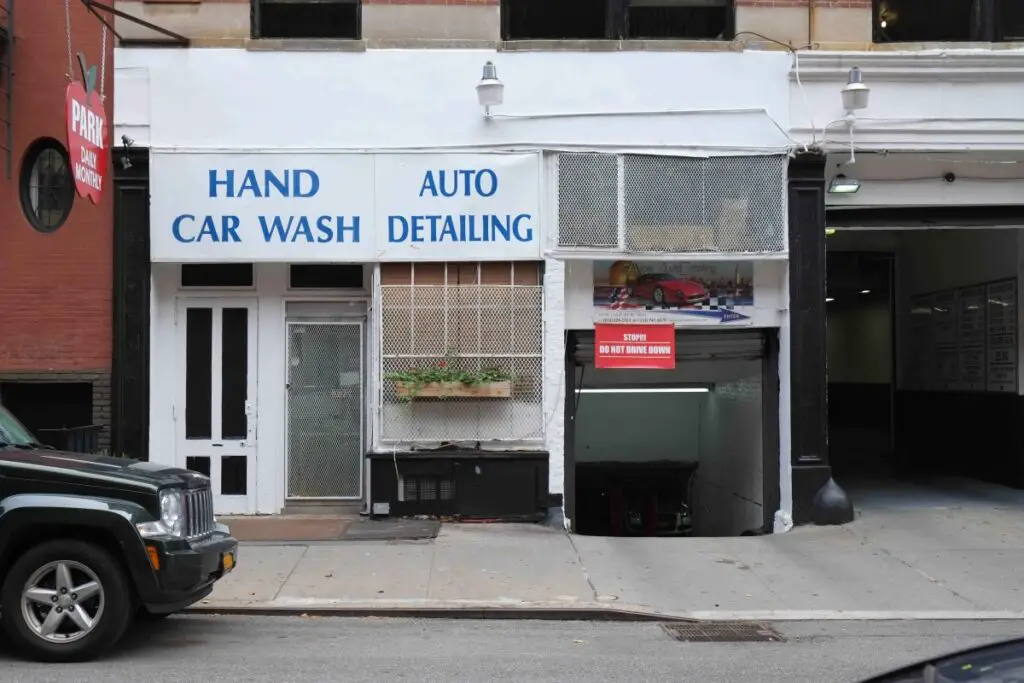
Factors Affecting the Time Needed for Car Detailing
Car detailing is not a one-size-fits-all process. The time it takes to detail a car depends on several factors that can impact the duration of the job.
Let’s take a closer look at these factors and how they affect the time needed for car detailing.
Vehicle Size, Condition, and Type
The size, condition, and type of vehicle play a significant role in determining how long it will take to detail it.
Larger vehicles generally require more time as there are more surfaces to clean and treat. Similarly, if a car is heavily soiled or has extensive damage, it may take longer to restore its appearance.
Weather Conditions and Location Constraints
Weather conditions can also affect the time needed for car detailing. Rainy or humid weather may slow down the drying process, which can extend the overall duration of the job.
If the detailing is taking place outdoors or in an area with limited access to water or electricity, it may take extra time to complete the task.
Customer Preferences
How long does car detailing take? Customer preferences can influence how long it takes to detail a car as well. Some customers might have specific requests or additional services they want to be included in the detailing process.
These additional tasks will naturally increase the overall time required.
Considering these factors is essential when estimating how long it will take to detail a car accurately.
While some jobs may be completed quickly, others may require more time due to various circumstances, such as vehicle size, condition, weather conditions, location constraints, and customer preferences.
Auto Detailing Times for Interior, Exterior and Full Detailing Services
Car detailing services can vary based on the scope of work required. Let’s break down the average time needed for different types of car detailing services: interior-only, exterior-only, and full detail (both interior and exterior).
Estimating Average Time Needed for Interior-Only Detailing Service
The time required can depend on factors such as the size of the vehicle and its current condition. On average, it takes around 1 to 2 hours to thoroughly clean and detail the interior of a car.
This includes vacuuming, steam cleaning carpets and upholstery, wiping surfaces, cleaning windows, and treating leather or vinyl.
Estimating Average Time Needed for Exterior-Only Detailing Service
For those looking to have just the exterior of their car detailed, the time needed will also vary. On average, it takes approximately 1 to 3 hours to complete an exterior-only detailing service.
This involves washing and drying the vehicle, waxing or polishing the paintwork, cleaning wheels and tires, and applying protective coatings.
Estimating Average Time Needed for Full-Detail Service (Interior + Exterior)
If you want a complete overhaul of your vehicle inside and out with both interior and exterior detailing services combined, be prepared for a longer wait time.
On average, a full-detail service can take anywhere from 3 to 6 hours or more, depending on various factors like vehicle size and condition.
It’s important to note that these are just general estimates based on typical scenarios. The actual time needed may vary depending on factors such as the level of dirtiness or damage present in your vehicle.
Interior Car Detail Add-Ons include
There are some additional services commonly included in the packages. These add-ons can help give your vehicle a thorough and deep clean, ensuring that every nook and cranny is spotless. Let’s take a look at what these interior car detail add-ons are:
Upholstery Cleaning and Stain Removal
One of the key aspects of interior detailing is upholstery cleaning. This involves removing dirt, stains, and grime from the seats, carpets, and fabric surfaces inside your vehicle.
Professional detailers use specialized tools and products to effectively clean and restore the upholstery, leaving it fresh and looking as good as new.

Carpet Shampooing
Carpet shampooing is another important step in interior car detailing. Over time, carpets can accumulate dirt, debris, and odors that regular vacuuming may not fully remove.
By using a specially formulated carpet shampoo and a powerful extractor machine, detailers can deeply clean the carpets, eliminating stains and unpleasant smells.
Leather Conditioning
For vehicles with leather interiors, leather conditioning is an essential add-on service. Leather requires regular maintenance to keep it soft, supple, and protected from cracking or fading.
Detailers will apply a high-quality leather conditioner that moisturizes the material while providing a protective barrier against UV rays and other potential damage.
Odor Elimination Treatments
If your vehicle has any lingering odors, like cigarette smoke or pet smells, an odor elimination treatment can work wonders.
Detailers use specialized techniques such as ozone treatment or enzymatic cleaners to neutralize unpleasant odors at their source rather than just masking them with air fresheners.
By opting for these interior car detail add-ons along with the standard interior detailing package, you can ensure that your vehicle receives a comprehensive cleaning both inside and out.
Quick vs Comprehensive Car Detailing
How long does car detailing take? You have two options: quick detailing or comprehensive detailing. Each option has its own benefits and time differences, so it’s important to understand what they entail before making a decision.
Benefits of Quick Detailing for Regular Maintenance
Quick detailing is a great option for regular maintenance. It involves a basic cleaning and touch-up job that can be done relatively quickly. Here are some advantages of quick detailing:
- Saves time: Quick detailing is perfect for busy people who don’t have hours to spare at the shop.
- Cost-effective: Since it’s a simpler job, quick detailing is usually more affordable than comprehensive detailing.
- Maintains appearance: Regular quick detailing helps keep your car looking clean and presentable.
Added Value of Comprehensive Detailing for Thorough Cleaning and Restoration
On the other hand, if your car needs a deep clean or restoration work, comprehensive detailing is the way to go. Here’s why:
- Thorough cleaning: Comprehensive detailing involves an in-depth cleaning of every nook and cranny, leaving no dirt or grime behind.
- Restores shine: This type of detailing includes polishing and waxing to restore your car’s original shine.
- Addresses issues: Comprehensive detailing can address specific problems like stains on upholstery or scratches on the paint.
Consider Your Specific Needs When Choosing a Service
When deciding between quick and comprehensive detailing, consider your specific needs. If you’re looking for regular maintenance to keep your car looking good, quick detailing may be sufficient.
However, if your car requires extensive cleaning or restoration work, it’s worth investing in comprehensive detailing.
Tips to Speed Up the Car Detailing Process
To reduce the time it takes to detail a car, there are several practical suggestions you can follow. By implementing these tips, you can ensure a quicker and more efficient detailing process.
Prepare the vehicle beforehand
One way to save time is by preparing the vehicle before starting the detailing process. This means removing any personal items from the car, such as loose change, trash, or other belongings.
By doing this beforehand, you won’t waste time going back and forth to remove items during the detailing process.
Prioritize tasks based on importance and time constraints
Another tip is to prioritize your tasks based on their importance and any time constraints you may have.
Start with essential tasks like washing and waxing before moving on to less critical areas. This way, if you run out of time, at least the most crucial parts of the car will be clean and shiny.
Use efficient tools and products
Investing in efficient tools and products specifically designed for faster results can significantly speed up your car detailing process.
Look for high-quality wax that is easy to apply and remove quickly without compromising on shine or protection. Consider using microfiber towels that absorb water efficiently and dry surfaces faster.
Seek professional assistance if needed
If you’re short on time or simply want a quicker solution, consider seeking professional assistance for your car detailing needs.
Professional detailers have experience working efficiently and can complete the job in a fraction of the time it may take an inexperienced individual.
By following these tips—preparing your vehicle beforehand, prioritizing tasks effectively, using efficient tools and products, or seeking professional help—you can significantly reduce the amount of time it takes to detail your car while still achieving excellent results.
How To Clean Your Vehicle Interior
Cleaning the interior of your vehicle is an essential part of car maintenance. It not only keeps your car looking good but also helps maintain its value. Here are some tips to help you clean your vehicle’s interior effectively:
Gather the Right Tools
Before you begin cleaning, make sure you have all the necessary tools and supplies. These may include:
- Vacuum cleaner with attachments
- Microfiber cloths or towels
- All-purpose cleaner or interior cleaner
- Glass cleaner for windows and mirrors
- Upholstery cleaner for fabric seats
Start with Decluttering
Remove any trash, personal items, and unnecessary clutter from your car. This will make it easier to clean and ensure that no dirt or dust is left behind.
Vacuum Thoroughly
Use a vacuum cleaner with appropriate attachments to remove loose dirt, crumbs, and debris from the seats, carpets, floor mats, and other surfaces. Pay attention to hard-to-reach areas like between seat cushions and in crevices.
Clean Surfaces
Wipe down all surfaces using an all-purpose cleaner or interior cleaner. This includes the dashboard, steering wheel, door panels, center console, and any other plastic or vinyl surfaces. Use microfiber cloths or towels for a streak-free finish.
Treat Stains
If you have any stains on your upholstery or carpet, use an appropriate stain remover or upholstery cleaner to treat them. Follow the instructions on the product carefully to avoid damaging the material.
Clean Windows and Mirrors
Use a glass cleaner and a lint-free cloth to clean the windows and mirrors of your car. Spray the glass cleaner directly onto the cloth rather than onto the surface to prevent streaks.
Remember that regular cleaning is important for maintaining a clean and comfortable interior. By following these steps regularly, you can keep your vehicle looking fresh and well-maintained.
How long does waterless detailing take?
Waterless detailing, which uses special high-lubricity sprays to polish and wash the vehicle’s bodywork, can be done in as little as 20–30 minutes. This method is eco-friendly and efficient.
Explaining Waterless Car Detailing
Waterless car detailing involves using specially formulated products to clean and protect the exterior of your vehicle without the need for excessive water usage. These products are designed to lift dirt and grime from the surface of your car, leaving it clean and shiny.
Average Time Estimates
The time it takes to complete a waterless car detailing service can vary depending on several factors. On average, a basic waterless detail can take anywhere from 30 minutes to an hour.
This includes cleaning the exterior surfaces, windows, wheels, and tires.
Variations Based on Vehicle Size and Condition
The size and condition of your vehicle can also impact the time it takes for a waterless detail. Larger vehicles may require more time due to their increased surface area.
If your vehicle is heavily soiled or has stubborn stains, it may take longer to achieve the desired results.
Benefits of Waterless Detailing
There are several benefits to choosing waterless car detailing:
- Water Conservation: By using minimal or no water, this method helps conserve our precious natural resource.
- Convenience: With no need for hoses or buckets of water, you can have your car detailed virtually anywhere.
- Environmental Friendliness: Waterless detailing reduces runoff pollution by minimizing the use of chemical-laden soaps.
A Quick Guide To Routine Washing
To keep your car looking clean and shiny, regular washing is essential. One option for maintaining the appearance of your vehicle is a quick detail.
This involves a surface-level cleaning that focuses on removing dirt and grime without going into extensive detailing.
What Does a Quick Detail Entail?
A quick detail typically involves a fast clean-up that enhances the car’s appearance. It includes light dusting, window cleaning, and applying a spray wax or detailer to the paint for added shine.
How long does it take?
On average, a quick detail can take anywhere from 30 minutes to an hour. The duration may vary depending on factors such as the size of the vehicle, its level of dirtiness, and the expertise of the person performing the task.
Surface-Level Cleaning
It’s important to note that quick detail primarily focuses on surface-level cleaning rather than deep cleaning or restoration. While it can effectively remove dirt and give your car a fresh look, it may not address more stubborn stains or imperfections.
When Should You Opt for a Quick Detail?
Quick detailing is ideal for maintaining your car’s appearance between full detailing sessions. It’s also great for sprucing up your vehicle before a road trip or event.

Conclusion
How long does car detailing take? The time it takes to detail a car can vary depending on several factors. These include the type of detailing service, the size and condition of the vehicle, as well as any additional add-ons or services requested.
A basic interior or exterior detailing can typically be completed within a few hours, while a full detailing service may take several hours to a full day.
It’s important to consider your specific needs and budget when deciding on the level of detail you require for your car.
If you’re looking to save time during the car detailing process, there are a few tips you can follow. First, make sure to communicate your expectations clearly with the detailing professional so they can efficiently prioritize their tasks.
Regular maintenance and cleaning of your vehicle can help reduce the time needed for future detailing sessions. Lastly, consider opting for quick or express detailing services if you’re in need of a faster turnaround.
FAQs
1. How often should I get my car detailed?
Car detailing frequency depends on factors like usage and climate. Generally, getting your car detailed every 3–6 months is a good starting point.
2. Can I detail my own car?
Yes, you can detail your own car if you have the necessary tools, products, and skills. Many car owners choose to do DIY detailing.
3. What is the clay bar treatment?
The clay bar treatment is a process that removes contaminants like dirt and grime from a car’s paint surface, leaving it smooth and ready for waxing or polishing.
4. Are there any risks involved in car detailing?
Risks in car detailing include paint damage from improper techniques, overuse of chemicals, and potential scratches if not done carefully.
5. How much does car detailing typically cost?
Car detailing costs vary widely, ranging from $50 for basic services to several hundred dollars for extensive detailing with added services like paint correction and ceramic coating.

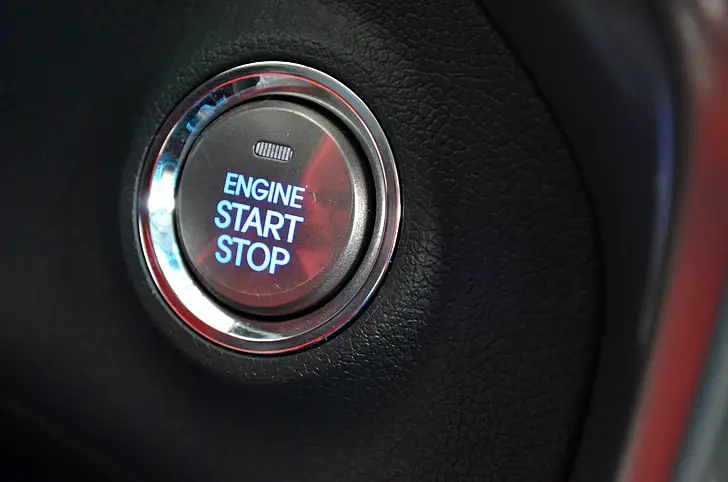
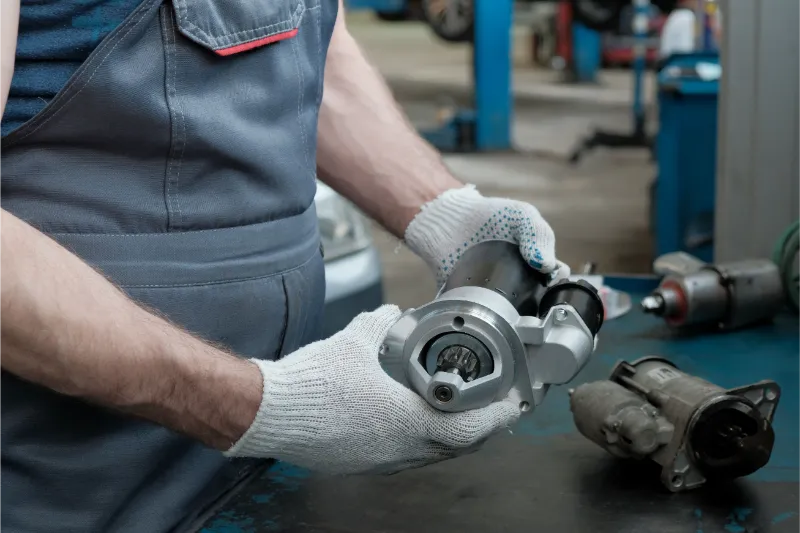
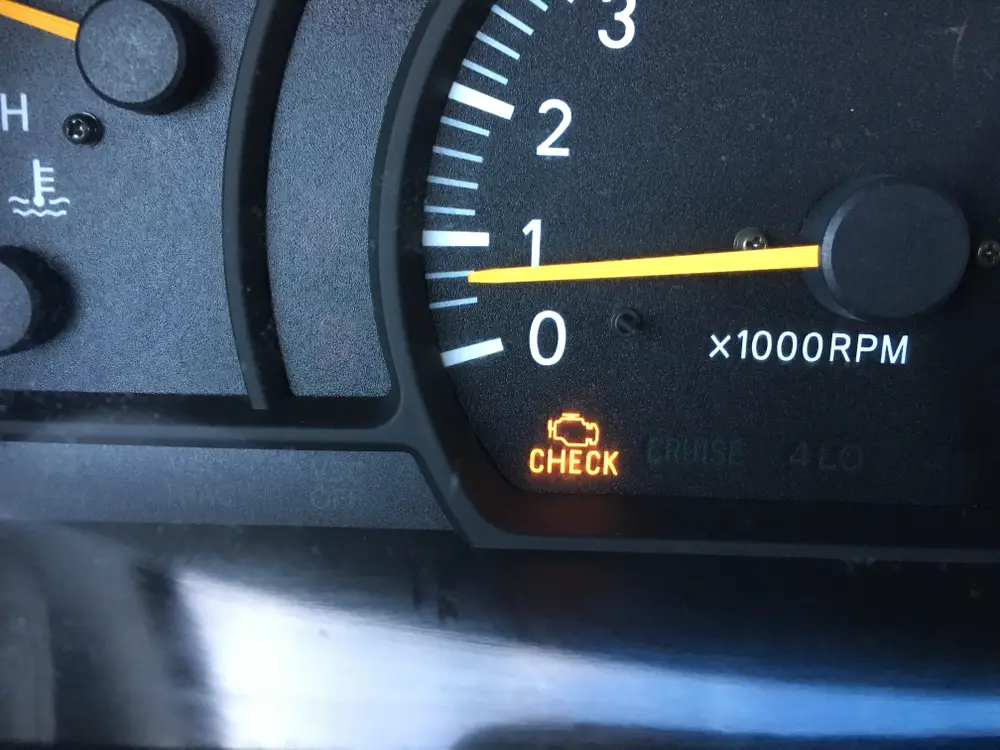
Leave a Reply